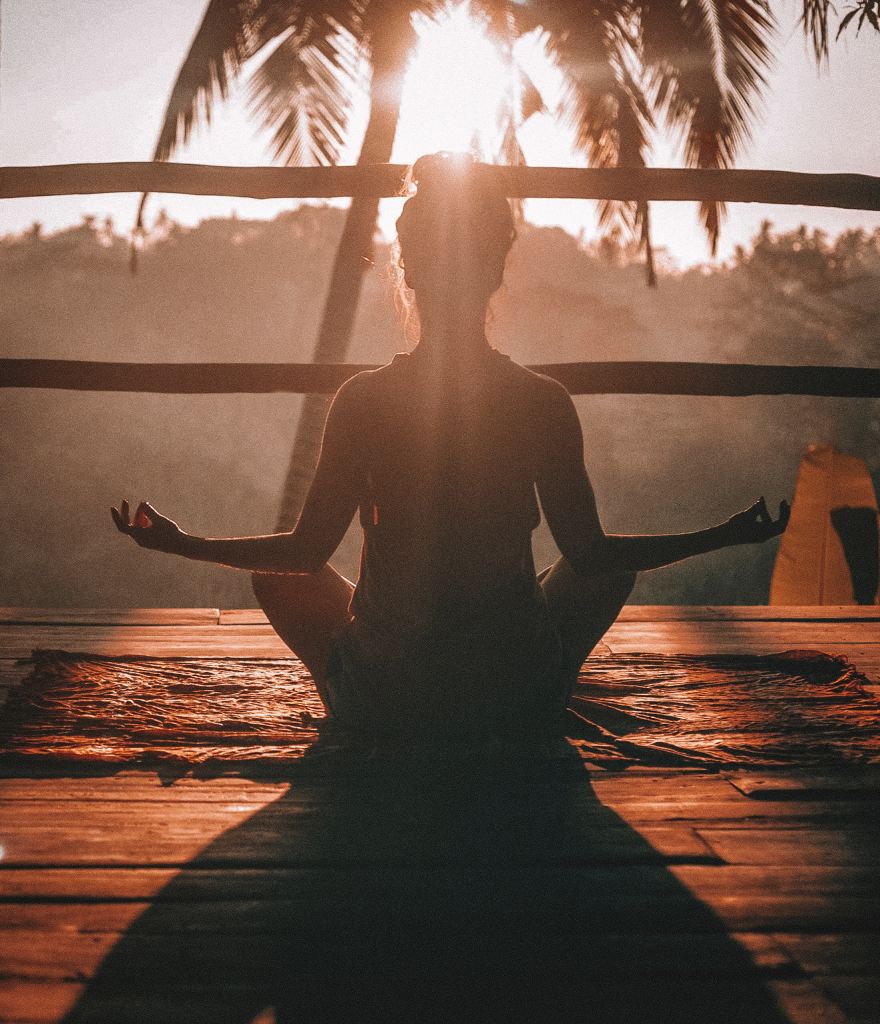One of my doctors gave me the best advice some 10 years ago now – firstly what you do today for 5 minutes do tomorrow for 5.5 minutes! ie stop pushing so hard – and learn meditation and poker!

Photo by Jared Rice on Unsplash
And so my meditation journey started (which is better than my poker one lol) but over the years I have now attended a number of classes and even taught – having the ability to turn your mind off and to stop it processing truly gives it time to heal.
The practice of meditation is nothing new – it has been around in recorded history for thousands of years. Indian artifacts have proven a form of meditation called, “Tantra,”, dating back over 5000 years. The Buddha of course is known as one of the biggest meditation icons and he has been around since 500 B.C. Researchers even suggest that primitive hunting and gatherers may have been the ones to discover meditation and its many different states of consciousness while gazing into the flames of their fires.
But the popularity in West started in the mid-20th century when researchers in the 60’s and 70s, started to learn about the medical benefits as they began testing the effects.
In its simplest form meditation is a practice that helps people achieve balance both
– Mentally
– Physically
– Emotionally
The best things in life are free and this certainly is one of the best ones – you can practice this in the comfort of your own home or become involved in a local meditation group, in time you can even do this on the train as you commute. No matter how you choose to incorporate meditation into your life you will be sure to discover benefits.
Meditation helps to lower your heart rate and blood pressure by slowing down your breathing which lowers the amount of oxygen needed for the body. The thought process allows the mind and muscles to gently relax. We all know relaxation is beneficial to health yet we all know that you cannot just switch a switch and relax.
It is said if you are too busy to mediate for 10 mins a day then you should be mediating for 20. But in all honestly even 2 mins will bring benefit – if you start with a tiny habit and consistently achieve it – it will grow.
So what Happens in Your Brain When You Meditate?
This is where things get really interesting. Using MRI scans, scientists have developed a more thorough understanding of what’s taking place in our brains when we meditate. At a basic level we stop thinking – we stop processing information.
We actual start to show a decrease in beta waves, which is how they can tell a brain is processing information and these can be seen on an MRI scan. Even if you have never tried mediation before and you think you have failed – after a single 20-minute meditation session you brain will have slowed down and the MRI scan would show this.
The image in Harrison’s thought bubble shows the beta waves (shown in bright colors on the left) are dramatically reduced during meditation (on the right).
So what is happening.
– Frontal lobe
This is the most highly evolved part of the brain, responsible for reasoning, planning, emotions and self-conscious awareness. During meditation, the frontal cortex switches off.
– Parietal lobe
This part of the brain processes sensory information about the surrounding world, orienting you in time and space. During meditation, activity in this lobe slows down.
– Thalamus
The gatekeeper for the senses, this organ focuses your attention by funnelling some sensory data deeper into the brain and stopping other signals in their tracks. Meditation reduces the flow of incoming information to a trickle.
– Reticulated formation
As the brain’s sentry, this structure receives incoming stimuli and puts the brain on alert, ready to respond. Meditating dials back the arousal signal.
The real interesting thing is that over time when you mediate daily there comes a point where your brain continues in this state even when you are awake and going about your daily business – call it inner peace if you wish – but getting to this state takes time – but it’s a beautiful place to be in.
The more we meditate, the less anxiety we have, this is because we are loosening the connections of particular neural pathways.
What happens without meditation is that these sections of our brain that’s sometimes called the Me Center (ie the medial prefrontal cortex – the part that processes information relating to ourselves and our experiences) get tight.
Normally the neural pathways from the bodily sensation and fear centres of the brain to the Me Center are really strong. For example, when you experience a scary or upsetting sensation, it triggers a strong reaction in your Me Center, making you feel scared and under attack.
When we meditate, we weaken this neural connection. This means that we don’t react as strongly to sensations that might have once lit up our Me Centres. As we weaken this connection, we simultaneously strengthen the connection between what’s known as our Assessment Center (the part of our brains known for reasoning) and our bodily sensation and fear centres. So, when we experience scary or upsetting sensations, we can more easily look at them rationally.
For example, when you experience pain, rather than becoming anxious and assuming it means something is wrong with you, you can watch the pain rise and fall without becoming ensnared in a story about what it might mean.
So in short – Why meditate – because its good for you!
Tee x
#meditation#love#mindfulness#healing#peace#selflove#motivation#nature#selfcare#inspiration#life#wellness#happiness#mentalhealth#energy#health#positivevibes#consciousness#fitness#wisdom#quotes#meditate#gratitude#soul